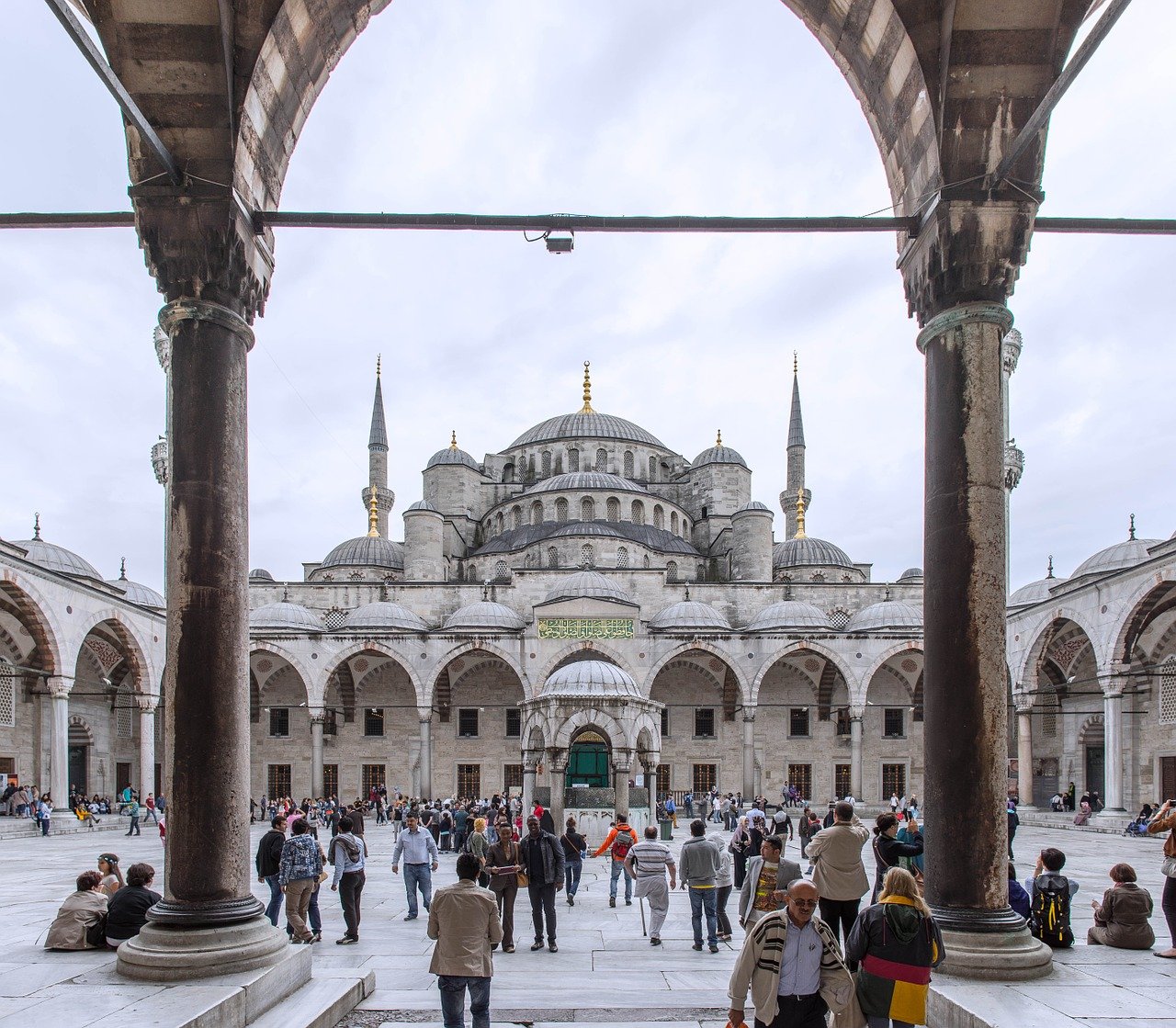Islam in Turkey is the dominant religion in the whole country around 97.8% of the population, and the majority of them follow the Sunni sect.
Despite the rich Islamic history of the Turks during the Ottoman Caliphate period, the modern Turkish Republic founded by Kemal Ataturk almost severed the link between it and this Islamic history at the legislative and legal levels of the Turkish state, as it adopted the secular approach as a system of government after its establishment in 1923.
The other 80% see themselves as citizens first, counting religion second, third, or fourth, and some are secular, and have no interest in religion at all.
The famous mosques in Turkey
Islam in Turkey is vivid in every corner of the country; the Turkish Muslims are the most moderate and tolerant of all, and non-Muslims are welcome as visitors in all Turkish mosques.
- Hagia Sophia Mosque whose name in Greek means «holy wisdom,» is an important religious influence for Muslims and Christians alike. Hagia Sophia has undergone great historical transformations that coincided with political and religious transformations in Turkey.
- Suleiman the Magnificent Mosque (Sulaymaniyah Mosque) located in the middle of a group of areas, including a cemetery, four schools, a hospital, a hotel, a minaret, shops, baths, and others.
- Sultan Ahmed Mosque (Blue Mosque) is considered one of the most important and largest mosques in Istanbul. It is located in Sultanahmet Square and in front of it is the Hagia Sophia Mosque, and it is distinguished by its distinctive architecture.
- Cave of Hira Mosque: The mosque is located nine meters underground and was built using natural volcanic stones, and its construction is similar to the cave of Hira in order to bring the spirituality of the place to those in it.
- Al-Fatih Mosque: This mosque was built during the time of the Ottoman Empire
- The Arab Mosque: located in Istanbul, it is the only mosque built in the Andalusian style.
- Sicily Mehmed Pasha Mosque: It is located in Istanbul and was built over the ruins of a Byzantine church.
Islamic practices in Turkey
- The call to prayer
The call to prayer is done five times a day in all mosques, the call to prayer is very sacred, and travelers must avoid making offensive comments, and non-Muslims must adhere to some etiquette towards the worshipers, which is not to stand in front of a person who prays, and to remain silent for the length of the prayer.
- Ramadan fasting in Turkey
It is considered unacceptable to eat in public during Ramadan, if you need to eat, do so inside a closed restaurant, or in your hotel
- The veil
Turkey lifted the ban on wearing the headscarf in state institutions in 2013, an old restriction that supporters have considered an important symbol of the separation between state and religion.

